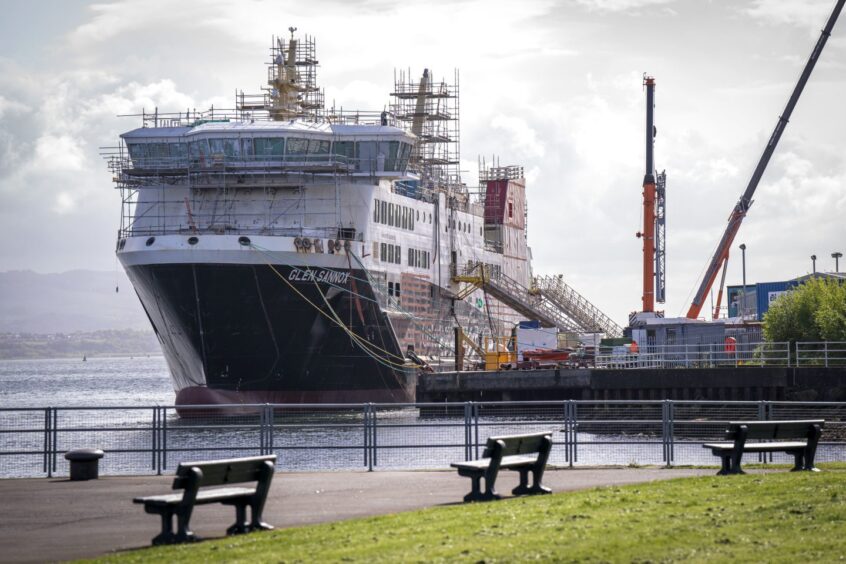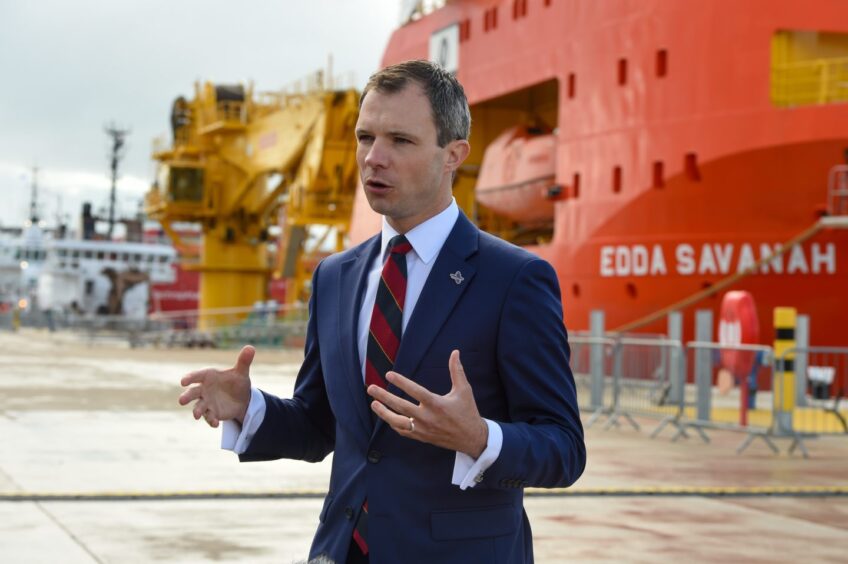
Conservative ministers in Scotland have warned of a potential “domestic energy trap” if the government’s green targets result in importing liquefied natural gas (LNG) from Qatar and the United States.
“LNG produces 20% less carbon than traditional marine gas,” said Scotland’s shadow energy minister Andrew Bowie.
“But importing that as shale gas from the US, or from Qatar, is twice as carbon intensive as it would be using North Sea production.”
Labour energy minister Michael Shanks has said the Department for Energy Security and Net Zero “do not hold estimates of required volumes” for imports between 2025 and 2030.
LNG is expected to bridge a gap in heating rural homes and businesses in Scotland that are not connected to the main gas network.
Scotland’s shadow energy minister Bowie had asked the UK energy minister whether any calculation had been made on how imports would be affected.
The Minister of Parliament for West Aberdeenshire and Kincardine raised concerns that the government does “not seem to place any value in the strategic management of our energy supplies, domestic or international”.
“If we offshore our responsibilities and emissions, we have no means to control them and Mr Shanks is potentially making the mistake of walking into a domestic energy trap,” Bowie said.
LNG is produced by purifying natural gas and cooling it to -162 celsius.
The fuel is expected to be used for the delayed dual-fuel Caledonian MacBrayne (CalMac) ferries MV Glen Sannox and Glen Rosa, which will run on Qatari imports until bulk storage terminals are built in Ardossan and Uig.
The Scottish government said in response to a freedom of information request in 2022 that CalMac was undertaking “a procurement exercise”, backed by local government, to obtain LNG supplies that are bulk shipped to the Isle of Grain terminal in Kent.
Glen Sannox is the first UK ferry to be built that can run on both LNG and marine gas oil, a low-sulphur diesel.
LNG liquefaction and regasification terminal company Crown LNG Holdings Ltd is meanwhile due to make a final investment decision for a floating import terminal near Grangemouth, Scotland, in 2025.
Demand for LNG has been predicted to rise in Scotland, according to a report carried out for Scottish Enterprise in 2018.
“The research found that demand for LNG as fuel for transportation was expected to increase rapidly, but from a very low base,” the report said.
“New proposed investments in Scotland and the North of England are seeking to meet growing demand.”
Mike Tholen, sustainability and policy director at Offshore Energies UK, said: “The best way to protect consumers and provide secure affordable energy is to produce as much of it as we can within the UK.
“The UK is currently reliant on overseas imports for over 50% of the natural gas used to heat our homes and power our economy.”
Recommended for you

 © Mathew Perry/DCT Media
© Mathew Perry/DCT Media © DC Thomson
© DC Thomson